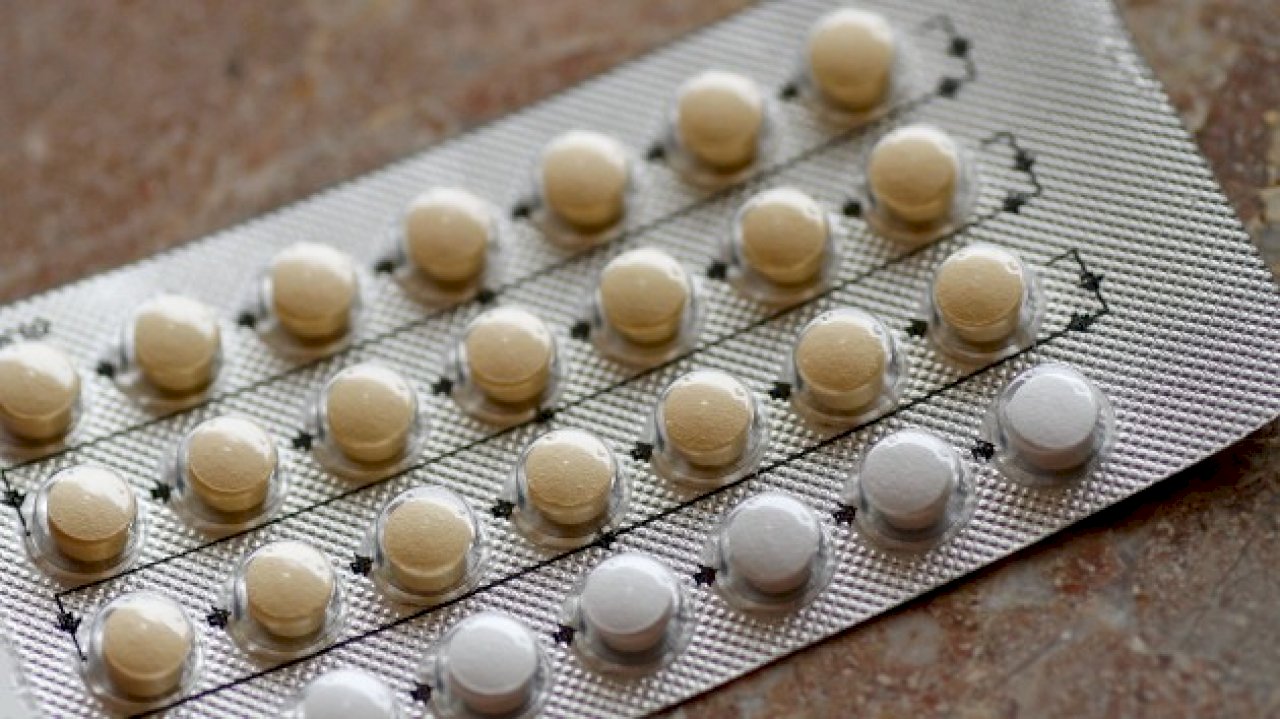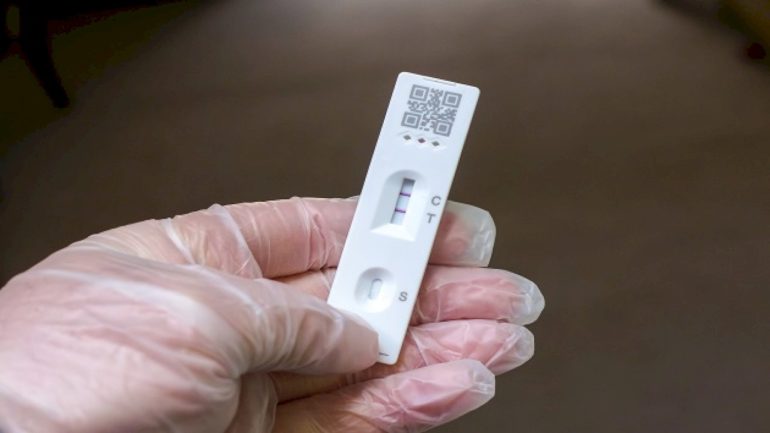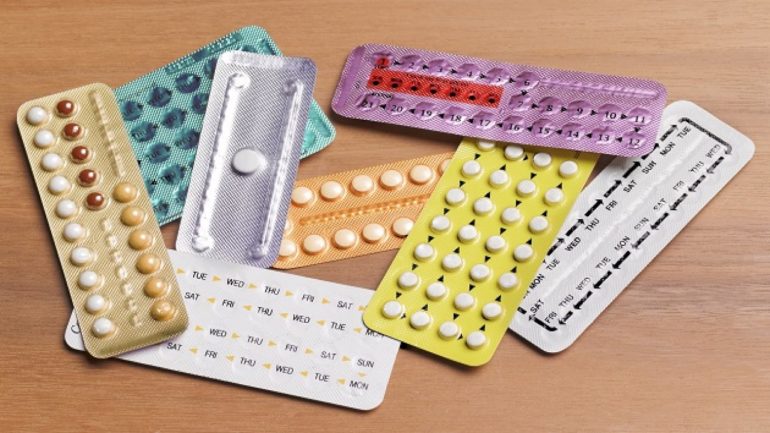Listeners:
Top listeners:
-
 play_arrow
play_arrow
94.3 Rev-FM The Rock of Texas | Where Texas Rocks
-
 play_arrow
play_arrow
99.1 The Buck Texas Country's Number 1 Country
-
 play_arrow
play_arrow
103.7 MikeFM Your Texas Hill Country Mix Tape
-
 play_arrow
play_arrow
KERV 1230 AM
-
 play_arrow
play_arrow
JAM Sports 1 JAM Broadcasting Sports 1
-
 play_arrow
play_arrow
JAM Sports 2 JAM Broadcasting Sports 2
What Trump has said about birth control, and what he could do as president

The election of former President Donald Trump to a second term has put a spotlight on what his return to the White House may look like, particularly when it comes to women’s health.
Online searches for topics related to women’s health have spiked since the Nov. 5 election, particularly when it comes to birth control, Google data shows.
Searches for IUDs, birth control pills, and Plan B are trending higher than they have since June 2022, when Roe v. Wade was overturned, giving states the power to decide abortion access.
Since then, at least 14 states have ceased nearly all abortion services, and 21 states have put into effect restrictions on abortion.
The current abortion landscape combined with Trump’s comments about birth control on the campaign trail and his first administration’s efforts to roll back insurance coverage of contraceptives have led to uncertainty about what will happen in his second term.
Here are five questions answered.
1. What does the term ‘birth control’ include?
Birth control, also known as contraception, is the broad term for the act of preventing pregnancy.
The term includes everything from medicines and methods to devices and surgery used to prevent pregnancy, according to the National Library of Medicine.
One of the most widely-known and used types of contraception is the birth control pill, an oral, hormonal medication that commonly requires a prescription.
Around 14% of women in the United States between the ages of 15 to 49 currently use the pill, according to the Centers for Disease Control and Prevention.
2. What did Trump say about birth control on the campaign trail?
During an interview with a Pittsburgh TV station in May, Trump was asked if he supports any restrictions on a person’s right to contraceptives.
“Well, we’re looking at that and we’re going to have a policy on that very shortly,” Trump responded with. “And I think it’s something you’ll find interesting and it’s another issue that’s very interesting.”
When asked to clarify if he was suggesting he was open to supporting some restrictions on contraceptives, “like the morning-after pill,” Trump responded, “Things really do have a lot to do with the states — and some states are going to have different policy than others.”
The former president quickly took to social media to clarify his position, claiming that he was not advocating for restrictions on contraceptives.
“I HAVE NEVER, AND WILL NEVER ADVOCATE IMPOSING RESTRICTIONS ON BIRTH CONTROL, or other contraceptives,” he wrote in a May 21 post on his social media platform.
The Trump campaign further attempted to clarify, claiming the policy Trump was referring to during the interview was mifepristone, often used in pregnancy termination. However, Trump was not asked about the abortion medication.
After winning the 2024 presidential election, Trump and the transition team have been advised on health-related appointments by Robert F. Kennedy Jr., who has also been in discussions to possibly fill a major role in the next administration, sources familiar with the matter told ABC News.
ABC News has not found public comment from RFK Jr. on the issue of birth control.
3. What happened on birth control during Trump’s first administration?
During Trump’s first term, the Department of Health and Human Services issued new rules allowing more employers to opt-out of the Affordable Care Act mandate guaranteeing no-cost contraceptive services for women.
The Supreme Court upheld the HHS decision in a 7-2 ruling in 2020, giving an employer or university with a religious or moral objection to opt out of covering contraceptives for employees.
4. As president, what power does Trump have over birth control?
As president, Trump would have the authority to order rollbacks of measures implemented by President Joe Biden’s administration to protect birth control.
As recently as October, the Biden administration announced a plan to require insurers to fully cover over-the-counter contraceptives.
In January, the administration announced several other measures to protect contraception access, including federal agencies issuing new guidance to “clarify standards” and make sure Food and Drug Administration-approved contraceptive medications are available for free under the Affordable Care Act.
Once Trump is in office, he will also have the chance to appoint Supreme Court justices if vacancies arise. During his first term, Trump appointed three justices.
Trump could also work with Congress to enact legislation on women’s reproductive rights, including birth control. Following the Nov. 5 election, control of the House of Representatives is still up in the air, while ABC News has projected that Republicans will win the Senate.
5. What has the Supreme Court said on birth control?
When the Supreme Court overturned Roe v. Wade in 2022, a solo concurring opinion by Justice Clarence Thomas included a line on birth control.
In his opinion, Justice Clarence Thomas wrote that the court “should reconsider” Griswold v. Connecticut, the Supreme Court ruling that invalidated a Connecticut law that made it illegal to use birth control devices or to advise about their use.
“We have a duty to ‘correct the error’ established in those precedents,” Thomas wrote, citing the Griswold ruling among others.
ABC News’ Lalee Ibssa, Will McDuffie, Kelsey Walsh and Soo Rin Kim contributed to this report.
Copyright © 2024, ABC Audio. All rights reserved.
Written by: ABC News
Similar posts
-
Top popular

Ingram man charged with murder after fatal shooting

Kerr Crime Stoppers offering reward up to $5,000 for information in last week’s non-viable school threat

KISD asks parents to communicate with children about words and actions after ‘copy cat’ threat note found at middle school

City of Kerrville Parks and Recreation reminds citizens that a Red Flag Warning is in effect until further notice

City of Kerrville says that May 7 General and Special Elections will proceed



